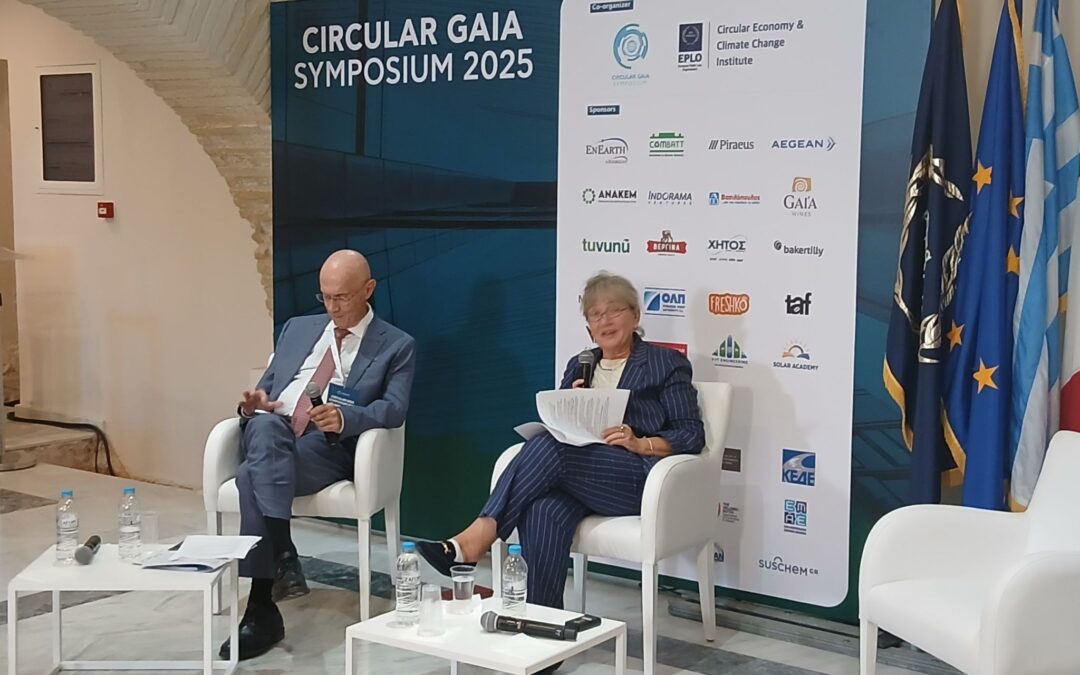On October 2–3, 2025, the Circular Gaia Symposium was held in Athens, bringing together international stakeholders to promote dialogue on sustainability, climate resilience, and the circular economy. Organized by the Circular Economy and Climate Institute of the European Public Law Organization (EPLO), the event gathered high-level policymakers, experts, academics, and civil society representatives to discuss key issues including the energy transition, circular cities, innovation, sustainable tourism, cultural heritage, and the blue economy.
Among the distinguished speakers was Tatjana Hema, Coordinator of UNEP/MAP, who participated in the panel titled “The Role of Women in Promoting Circularity and the SDGs.”
The discussion highlighted the crucial role of women in driving the green transition—as entrepreneurs, innovators, and household consumption managers. Panelists emphasized how women’s contributions to the circular economy can foster nature-positive solutions, generate green jobs, and enhance climate resilience.
During this session, UNEP/MAP introduced two key initiatives: Mediterranean Women Leadership 4 SDGs, and UNEP/GEF MedProgramme, a $905 million effort that mainstreams gender equality across all dimensions of coastal and marine governance.
These initiatives underscore the importance of recognizing and empowering women as true agents of change.
Tatjana Hema also took part in the panel “Circular Blue Economy in Memoriam of Ambassador Sotiris Varouxakis,” where she highlighted that a sustainable blue economy is essential for a smart green transition in the Mediterranean. Such an economy, she noted, will drive a low-carbon, circular, and resource-efficient future.
She further remarked the importance of leveraging financial mechanisms, enhancing capacity at all levels, and maximizing nature-based solutions to promote a resilient and sustainable blue economy aligned with the SDGs.
The upcoming COP24 (December 2–5, Egypt) will focus precisely on the sustainable blue economy, building on 50 years of UNEP/MAP leadership and regional cooperation under the Barcelona Convention. Furthermore, the Mediterranean Strategy for Sustainable Development 2026–2035 places the sustainable blue economy as a central driver, promoting circular approaches, marine spatial planning, and cross-sectoral partnerships.
With its 2025 edition, the Circular Gaia Symposium reaffirmed its commitment to ambitious climate action, regional collaboration, and the integration of circular principles into policy, business, and society.
The event also featured the presentation of the Athens Declaration on culture-based climate action, the Circular Gaia Awards, and concluded with forward-looking discussions on circular leadership.

